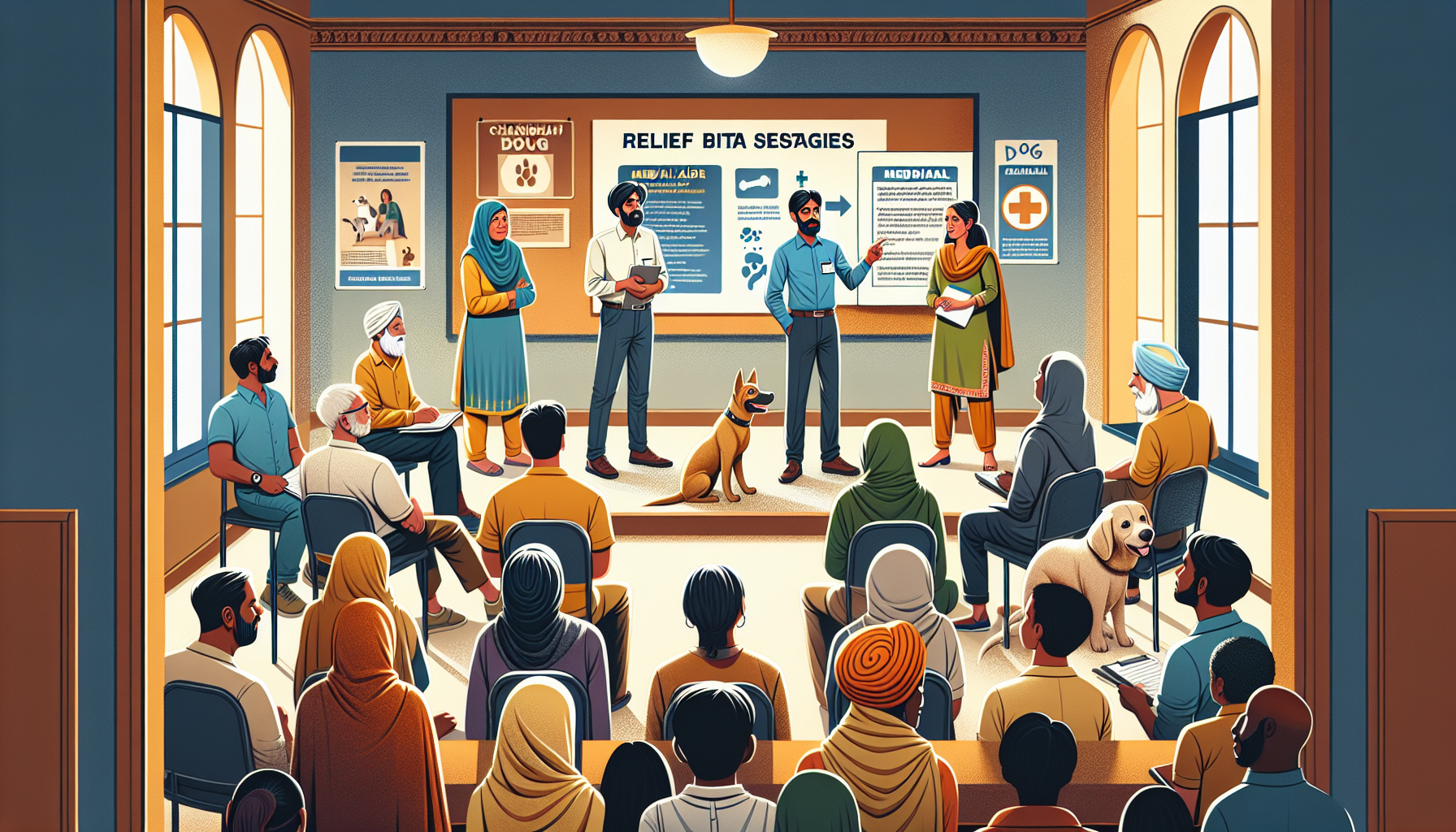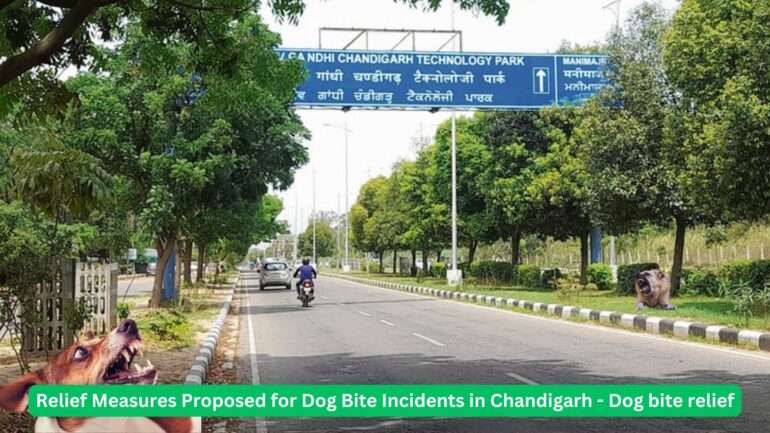- Empty cart.
- Continue Shopping
Relief Measures Proposed for Dog Bite Incidents in Chandigarh – Dog bite relief

Dog bite relief –
Relief Measures Proposed for Dog Bite Incidents in Chandigarh
Chandigarh, known for its urban planning and lush green spaces, has witnessed an increasing number of dog bite incidents in recent times. In an effort to address the growing concern, a sub-panel of the Union Territory (UT) administration has suggested comprehensive dog bite relief measures for affected residents. This initiative aims to alleviate the distress and challenges faced by victims through a structured approach.
Dog Bite Relief – The Emergence of Dog Bite Cases
The past few months have seen a noticeable uptick in dog bite reports across Chandigarh. The city’s burgeoning canine population, comprising both pets and strays, has contributed to the issue. Several factors have been identified as causes for the rise in such incidents, including:
- Increased Interaction: Proximity to stray dogs due to expanding urban areas.
- Lack of Awareness: Residents often lack knowledge about how to properly engage or avoid aggressive dogs.
- Insufficient Resources: Limited access to sterilization and vaccination for stray dogs.
The sub-panel’s recommendations are aimed at tackling these root causes to foster a safer environment for both residents and dogs.

Key Elements of the Dog Bite Relief Proposal
The proposed dog bite relief measures encompass several key initiatives designed to provide immediate aid and preventive strategies. Some of these measures include:
Immediate Medical Assistance
One of the primary focus areas is ensuring prompt medical treatment for dog bite victims. The proposal includes:
- Dedicated Hotline: Establishment of a 24/7 helpline for reporting dog bite incidents and coordinating medical response.
- Access to Vaccination: Free or subsidized rabies vaccinations and treatment for victims at government hospitals and clinics.
- First-Aid Kits: Distribution of special first-aid kits to community centers to provide immediate care on-site.
Dog Bite Relief – Compensation and Support
To offer financial relief to victims, the panel recommends a compensation package:
- Direct Financial Aid: Compensation to cover medical expenses and any loss of livelihood due to recovery time.
- Insurance Coverage: Introduction of a nominal insurance policy to support long-term care if required post-incident.
Preventive Measures and Education
Alongside the relief measures, the proposal emphasizes the importance of prevention through education and awareness initiatives:
- Community Workshops: Conduct regular workshops focusing on understanding dog behavior, safe interaction practices, and first-aid for dog bites.
- School Programs: Initiatives aimed at educating children about responsible dog behavior and safety practices.
Strategic Control of Stray Dog Population
One of the long-term solutions proposed is managing the stray dog population more effectively:
- Sterilization Drives: Increase the frequency and coverage of sterilization programs to control stray dog population growth.
- Vaccination Camps: Organize regular vaccination camps for stray dogs to prevent the spread of diseases such as rabies.
- Collaboration with NGOs: Partner with non-profit organizations for rescue and rehabilitation of stray dogs.
Dog Bite Relief – Public Response and Support
Initial public feedback indicates mixed reactions to the proposed dog bite relief measures. While many residents appreciate the efforts to address the issue, concerns about implementation and the long-term impact of the solutions have been raised. The administration plans to address these concerns by:
- Public Consultations: Engage with citizens through forums and surveys to incorporate community input into the final plan.
- Transparency: Regular updates and reports on the progress and effectiveness of the measures through public platforms.
The Role of Responsible Pet Ownership
A significant aspect of minimizing dog bite incidents is promoting responsible pet ownership. The proposal highlights:
- Pet Registration: Mandating the registration of all domesticated dogs to ensure they receive appropriate vaccinations and care.
- Owner Education: Initiatives to educate pet owners on proper dog care, training, and the importance of obedience and socialization.
- Enforcement of Regulations: Strengthening regulations and penalties regarding pet ownership responsibilities.
Exploring Technological Solutions
To complement traditional methods, the sub-panel is exploring the potential of technological innovations to enhance dog bite relief measures:
- Mobile Applications: Development of a user-friendly app for reporting incidents, tracking recovery progress, and accessing educational resources.
- Data Analytics: Utilize data to identify high-risk areas and patterns of occurrences for targeted interventions.
Conclusion
The proposal for dog bite relief measures in Chandigarh represents a thoughtful and comprehensive effort on the part of the administration to protect residents while promoting harmonious coexistence with the canine population. By focusing on immediate relief, strategic prevention, and fostering responsible pet ownership, these measures lay a foundation for a safer and more informed community.
As Chandigarh faces the challenges ahead, collaboration between the government, healthcare providers, community organizations, and the public will be crucial in ensuring the success and sustainability of these initiatives. Ultimately, the goal is to create a city where both its citizens and animals can thrive together in safety and harmony.
Unbeatable Discounts on Pet Accessories Now on Amazon!
Watch funny and cute dog videos!
Disclaimer: This article was generated with the assistance of AI technology. All images featured on this website are either sourced from free-to-use platforms, created by us, generated with the assistance of AI technology or used with permission. If you believe an image on this site violates copyright or your rights, please contact us, and we will address the issue promptly.

















